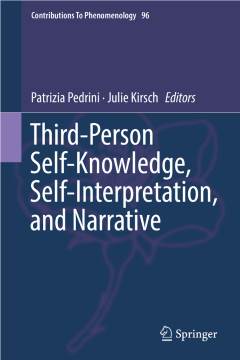Series | Book
Third-person self-knowledge, self-interpretation, and narrative
Abstract
In recent years, the idea that each person is in a privileged position to acquire knowledge about her own mental states has come under attack. A growing body of empirical research has cast doubt upon the existence of what philosophers call "first person self-knowledge', i.e., knowledge about our mental states that is often thought to be immediate, transparent, and authoritative. This line of thought has led some philosophers to claim that what seems to be "first-person self-knowledge' is really just "third-person self-knowledge,' i.e., knowledge about our mental states that is inferential, opaque, and fallible. This book discusses challenges for first-person knowledge and explores the true nature of third-person knowledge.
Details | Table of Contents
getting to know our own minds
pp.1-12
https://doi.org/10.1007/978-3-319-98646-3_1toward a new understanding of why false self-conceptions persist
pp.115-144
https://doi.org/10.1007/978-3-319-98646-3_7pp.159-175
https://doi.org/10.1007/978-3-319-98646-3_9why the cognitive science of folk psychology matters
pp.191-215
https://doi.org/10.1007/978-3-319-98646-3_11Publication details
Publisher: Springer
Place: Dordrecht
Year: 2018
Pages: 215
Series: Contributions to Phenomenology
Series volume: 96
DOI: 10.1007/978-3-319-98646-3
ISBN (hardback): 978-3-319-98644-9
ISBN (digital): 978-3-319-98646-3
Full citation:
Pedrini Patrizia, Kirsch Julie (2018) Third-person self-knowledge, self-interpretation, and narrative. Dordrecht, Springer.


